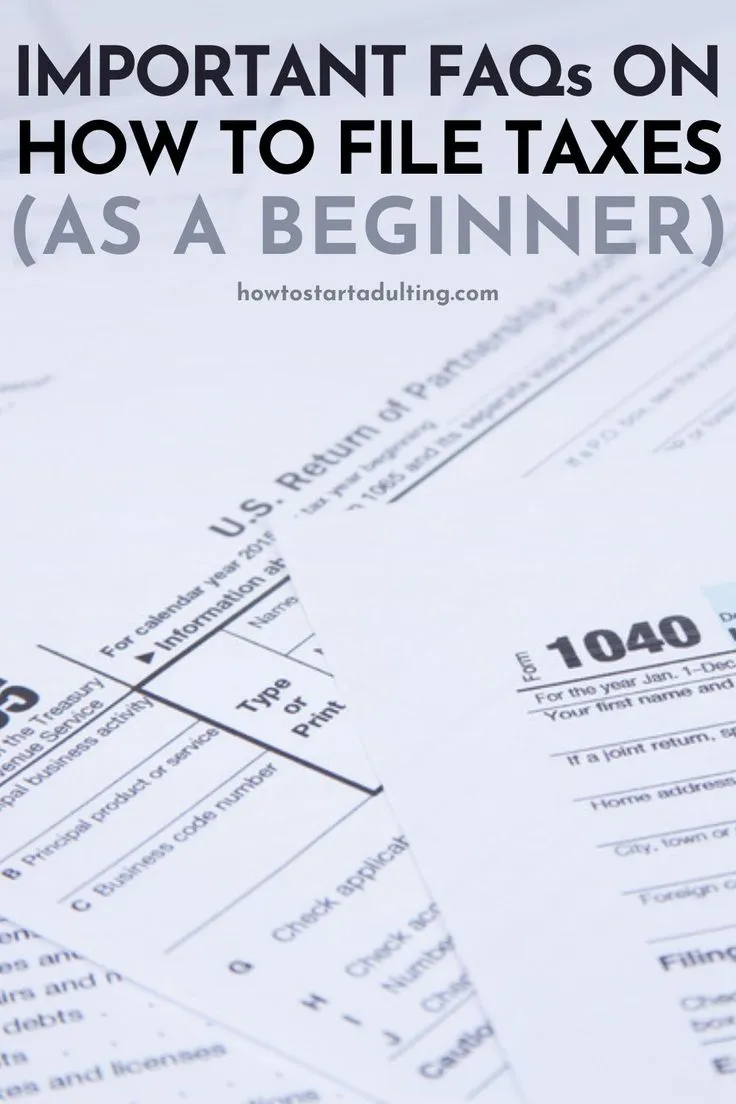Filing taxes can be a daunting task for anyone, but freelancers, especially those earning through platforms like Fiverr, might find it particularly overwhelming. With varying income levels and payment structures, figuring out how to report earnings appropriately is crucial. This guide aims to simplify the complexities of filing taxes for Fiverr income, ensuring you stay compliant and avoid potential pitfalls while maximizing your returns. Let's dive in!
Understanding Fiverr Income

Fiverr is a popular online marketplace that allows freelancers to offer services across various categories like writing, graphic design, video editing, and more. However, when it comes to taxes, understanding how Fiverr income works is vital.
Essentially, your Fiverr income is considered self-employment income, which means it needs to be reported as part of your taxable earnings. Here are some key points to keep in mind:
- Payment Structure: Fiverr pays freelancers on a project basis. Your income will be determined by the number of gigs completed and the price charged for each gig.
- Fees: It's important to note that Fiverr takes a commission fee for each transaction, typically around 20%. This fee should be deducted from your gross income when calculating your taxable earnings.
- Client Invoicing: Fiverr does not provide traditional invoices, but you can access your earnings report for your records. This report is crucial for tax filings.
- Payment Methods: Earnings can be transferred to your bank account, PayPal, or other payment methods. Each method may have different processing times and fees, which could affect your net income.
In summary, it’s essential to keep detailed records of all your Fiverr transactions, including gross income, fees, and payment dates. This will help streamline the tax filing process and ensure all income is accurately reported. Remember, understanding how your Fiverr income works today lays the foundation for a smoother tax season tomorrow!
Also Read This: Who is a Good T-Shirt Designer on Fiverr?
Tax Obligations for Fiverr Sellers

Understanding your tax obligations as a Fiverr seller is crucial to running a smooth and sustainable business. Since Fiverr is a platform that allows freelancers to earn income, it's important to know how to handle your taxes correctly to avoid any surprises later on. Let's break down what you need to keep in mind.
As a Fiverr seller, you might be classified as either a freelancer or an independent contractor. Here are some key tax obligations you should be aware of:
- Income Tax: Any money you make on Fiverr is considered taxable income. This means you must report all earnings, regardless of the amount.
- Self-Employment Tax: If your net earnings are $400 or more, you’ll need to pay self-employment tax in addition to your income tax. This is due to the nature of freelance work.
- Estimated Taxes: Unlike a traditional job, Fiverr does not withhold taxes for you. So, you might be required to pay estimated taxes quarterly to avoid penalties.
- Deductions: Familiarize yourself with what deductions you can claim. Expenses like software, marketing, and even part of your Wi-Fi bill may be deductible.
- Record Keeping: Keeping meticulous records of your earnings and expenses is vital. Use invoices, receipts, and even accounting software to help you track everything.
Ultimately, it’s a good idea to consult with a tax professional or use tax software specialized for freelancers. Staying on top of your tax obligations can save you time, money, and stress down the road!
Also Read This: Understanding the Process for Delivering and Getting Paid on Fiverr
Tracking Your Earnings on Fiverr

Keeping track of your earnings on Fiverr isn’t just important for your peace of mind; it's also essential for filing your taxes accurately. Fortunately, Fiverr provides various tools and methods to help you monitor your financial progress. Let's explore how to do this effectively!
Here are some practical steps to track your earnings:
- Fiverr Dashboard: Your Fiverr account dashboard displays all your recent orders, earnings, and withdrawal history. Make it a habit to check this regularly and keep a record of your total earnings.
- Selling Reports: Fiverr provides in-depth selling reports that showcase your performance metrics, including completed orders and average earnings. These reports can be downloaded for easier reference.
- Exporting Data: Take advantage of Fiverr’s option to export your earnings and transaction history. You can generate CSV files that you can easily organize and analyze.
- Bank Statements: Keeping track of the money that enters your bank account from Fiverr can also serve as a record. Make sure to note any fees deducted by Fiverr, as these will affect your taxable income.
- Using Accounting Software: Consider using accounting software like QuickBooks or FreshBooks. They can automate tracking your income, making it simpler to gather necessary data during tax season.
By meticulously tracking your earnings, you can gain better insight into your financial health and be well-prepared when tax time rolls around. Plus, you’ll be more informed about where to optimize your services to maximize your income!
Also Read This: How to Start Work in Fiverr
Choosing the Right Tax Form
When it comes to filing your Fiverr taxes, picking the right tax form might feel like a daunting task, but don't worry—I've got your back! Freelancers on Fiverr generally need to file either a Schedule C or, in some cases, a Schedule C-EZ if you're eligible. Let's break it down:
- Schedule C: This is the go-to form for most freelancers. It allows you to report your income and expenses, giving you a clear picture of your earnings and the costs associated with running your freelance business.
- Schedule C-EZ: If you're eligible, this simpler version of Schedule C reduces the paperwork and can make filing quicker. It’s designed for sole proprietors who have simple business operations—it includes fewer reporting requirements.
- Form 1040: Regardless of your choice between Schedule C or C-EZ, you'll need to include it with your Form 1040, which is the standard individual income tax return form.
- Form 1099-K: If you've earned over $20,000 and processed more than 200 transactions through Fiverr, you might receive this form. It reports income received, and you'll need to include it in your gross income.
Remember, accurate reporting is crucial. Double-check the income you've earned through Fiverr against any forms received to ensure you’re correctly filling out your chosen tax forms. If you've got questions or find it overwhelming, consider consulting a tax professional to help you navigate it all!
Also Read This: How Many Questions Can You Ask on Fiverr?
Deductions You Can Claim
Now, let's talk deductions because these can significantly lower the amount of tax you owe! As a freelancer on Fiverr, you have access to various deductions that can help keep more money in your pocket. Here’s a breakdown of what you can claim:
- Home Office Deduction: If you have a dedicated space in your home used exclusively for business, you can deduct a portion of your home expenses like rent, utilities, and internet bills. Be sure to calculate the square footage of your home office compared to your entire home for the deduction.
- Supplies and Equipment: All the tools you use for your freelancing—whether it’s a new computer, graphics software, or stationery—can be deducted. Just keep your receipts!
- Software and Subscriptions: Monthly subscriptions to services like Adobe Creative Cloud or other software that aids your work can be written off.
- Education and Training: If you’ve taken courses or attended workshops to hone your skills—good news! Those costs are deductible too.
- Business Travel and Meals: If you travel for business, expenses like flights, hotels, and meal costs can be claimed. Just remember, meals are typically deductible at 50%!
Collecting and organizing your receipts will make this process easier when tax season rolls around. Registering your expenses correctly could save you a considerable amount of money, so keep those records handy!
Also Read This: Learn About the Most Demanding Skills on Fiverr
7. Steps to File Your Taxes
Filing your taxes might seem daunting, but it’s a straightforward process once you break it down into manageable steps. Here’s a comprehensive list to guide you through it:
- Gather Your Documents: Start by collecting all necessary documents. For Fiverr freelancers, this typically includes:
- 1099 forms if you earned more than $600.
- Your annual earnings report from Fiverr.
- Receipts for any business-related expenses.
- Software and tools used for your projects.
- Marketing costs, like website expenses or social media ads.
- Home office expenses if you work from home.
And there you have it! Following these steps will get you through the process more smoothly, leaving you to focus on your next gig.
Also Read This: How to Create a Fiverr Gig Promo Code
8. Self-Employment Tax Considerations
As a Fiverr freelancer, you need to be aware of self-employment taxes, which are often misunderstood. Let’s break down the essentials:
- What is Self-Employment Tax? This tax consists of Social Security and Medicare taxes for individuals who work for themselves. Unlike a traditional employee who has these taxes withheld by their employer, freelancers must pay this tax directly.
- How is it Calculated? Generally, self-employment tax is calculated as a percentage of your net earnings. For the year 2023, the self-employment tax rate is 15.3%. This includes:
- 12.4% for Social Security (up to an income limit of $160,200 for 2023).
- 2.9% for Medicare (with an additional 0.9% for higher earners).
- What Deductions Can You Claim? You can deduct the employer-equivalent portion of your self-employment tax when calculating your adjusted gross income. This typically amounts to approximately half of your self-employment tax.
- Estimated Tax Payments: Since taxes aren’t withheld from your Fiverr earnings, you might need to make estimated tax payments quarterly. If you expect to owe $1,000 or more when you file your return, this is essential.
- Record Keeping: Maintain thorough and accurate records of your income and expenses. This not only makes tax filing easier but also ensures you can claim all eligible deductions.
Staying on top of your self-employment tax considerations can lead to significant savings and ensure you comply with tax regulations. Don’t let taxes stress you out; instead, see it as a part of the gig economy landscape!
Also Read This: How to Make Money on Fiverr in Urdu
9. Important Deadlines and Filing Extensions
When it comes to filing your taxes as a Fiverr freelancer, understanding deadlines is crucial to avoid penalties and interest charges. Each year, the IRS sets specific dates that you must adhere to when submitting your tax forms and payments. Let’s break it down:
Key Tax Deadlines:
- April 15: This is the standard deadline for individuals to file their income tax returns. If you miss this date, you might face late penalties.
- Quarterly Estimated Taxes: Since freelancers often don’t have taxes withheld from their paychecks, you are required to pay estimated taxes quarterly. These payments are typically due on April 15, June 15, September 15, and January 15 of the following year.
- Form 1099 Deadline: If you earn over $600 from Fiverr, you will receive a Form 1099 by the end of January. Keep an eye on your inbox!
If you find yourself in a pinch, filing extensions can provide a bit of extra time. However, keep in mind:
- Extension Application: You can file for an extension (Form 4868) which gives you until October 15 to submit your tax return. This does not apply to payments, which are still due by April 15.
- Paying Taxes: If you expect to owe taxes, you still need to make payments by the original April deadline to avoid penalties.
In summary, marking your calendar with these crucial dates will help you stay organized and minimize stress come tax time!
Also Read This: How to Delete Your Fiverr Account and Start Over
10. Using Tax Software or Hiring a Professional
Navigating the complexities of taxes can be daunting, especially for Fiverr freelancers. Fortunately, there are several options to help make the process smoother: using tax software or hiring a professional. Let's explore both options:
Using Tax Software:
- User-Friendly: Most tax software programs are designed with freelancers in mind and have features that cater to self-employed individuals.
- Cost-Effective: Usually less expensive than hiring a tax professional, tax software often costs between $20 to $100 depending on the complexity of your taxes.
- Step-By-Step Guidance: Many platforms provide clear instructions and support as you enter your information, which is great for those who prefer a hands-on approach.
Hiring a Tax Professional:
- Expertise: Tax professionals are knowledgeable about tax laws and can help you maximize deductions and credits specific to freelancers.
- Time-Saving: If you have a busy schedule, outsourcing your taxes can save you hours of stress and paperwork.
- Personalized Advice: A good tax professional can offer tailored advice and planning strategies that software simply can't match.
Ultimately, the choice between tax software and hiring a professional depends on your personal preference, comfort with managing your taxes, and budget. Both options can effectively lead you through the filing process, so choose the route that feels right for you!
Also Read This: Why is My Fiverr Seller Profile Not Approved?
Common Mistakes to Avoid When Filing Fiverr Taxes
When it comes to filing taxes as a Fiverr seller, there are several common pitfalls that can lead to unnecessary stress and financial repercussions. Being aware of these mistakes can help you navigate the tax filing process more smoothly. Let's break down some of the most frequent errors to sidestep:
- Not Keeping Accurate Records: One of the biggest mistakes freelancers make is failing to maintain detailed records of their earnings and expenses. It's vital to track each transaction meticulously, ideally using accounting software or a spreadsheet.
- Neglecting to Understand Deductions: Many Fiverr sellers overlook deductions they’re eligible for, such as software subscriptions, marketing expenses, and home office costs. Familiarizing yourself with deductible items can lower your taxable income significantly.
- Mixing Personal and Business Finances: Keeping your personal and business finances separate is crucial. Use a dedicated business bank account or PayPal account to easily track incoming and outgoing funds associated with your Fiverr activities.
- Waiting Until the Last Minute: Procrastination can lead to a rushed filing process, increasing the likelihood of errors. Start preparing your taxes early to avoid the last-minute scramble.
- Ignoring State Taxes: While federal taxes often take precedence, state tax obligations should not be ignored. Always check your local laws to ensure that you’re compliant on that front.
- Forgetting Self-Employment Tax: As a freelancer, you’re responsible for paying self-employment tax. Make sure to factor this into your calculations to avoid surprises when it comes time to pay the IRS.
By avoiding these common mistakes, you can file your Fiverr taxes more confidently and ensure that you remain in good standing with the tax authorities.
Conclusion
Filing taxes as a Fiverr seller may seem daunting at first, but it doesn’t have to be. With a clear understanding of your obligations and some proactive planning, you can streamline the process. Here’s a quick recap of what we’ve discussed:
- Know Your Tax Obligations: Familiarize yourself with federal and state tax requirements. Understanding whether you’re considered an independent contractor or a small business owner will influence your tax filings.
- Keep Comprehensive Records: Maintain meticulous records of your earnings and deductions throughout the year. This will save you considerable stress during tax season.
- Take Advantage of Deductions: Don’t leave money on the table. Track all business-related expenses that can help reduce your taxable income.
- Consider Professional Help: If taxes stress you out, think about hiring a tax professional who understands freelancing, particularly in the digital economy.
In short, while the responsibilities of managing your taxes as a Fiverr seller may seem overwhelming, taking the right steps can help mitigate your worries. So, roll up your sleeves, stay organized, and take control of your financial future. Happy freelancing!



